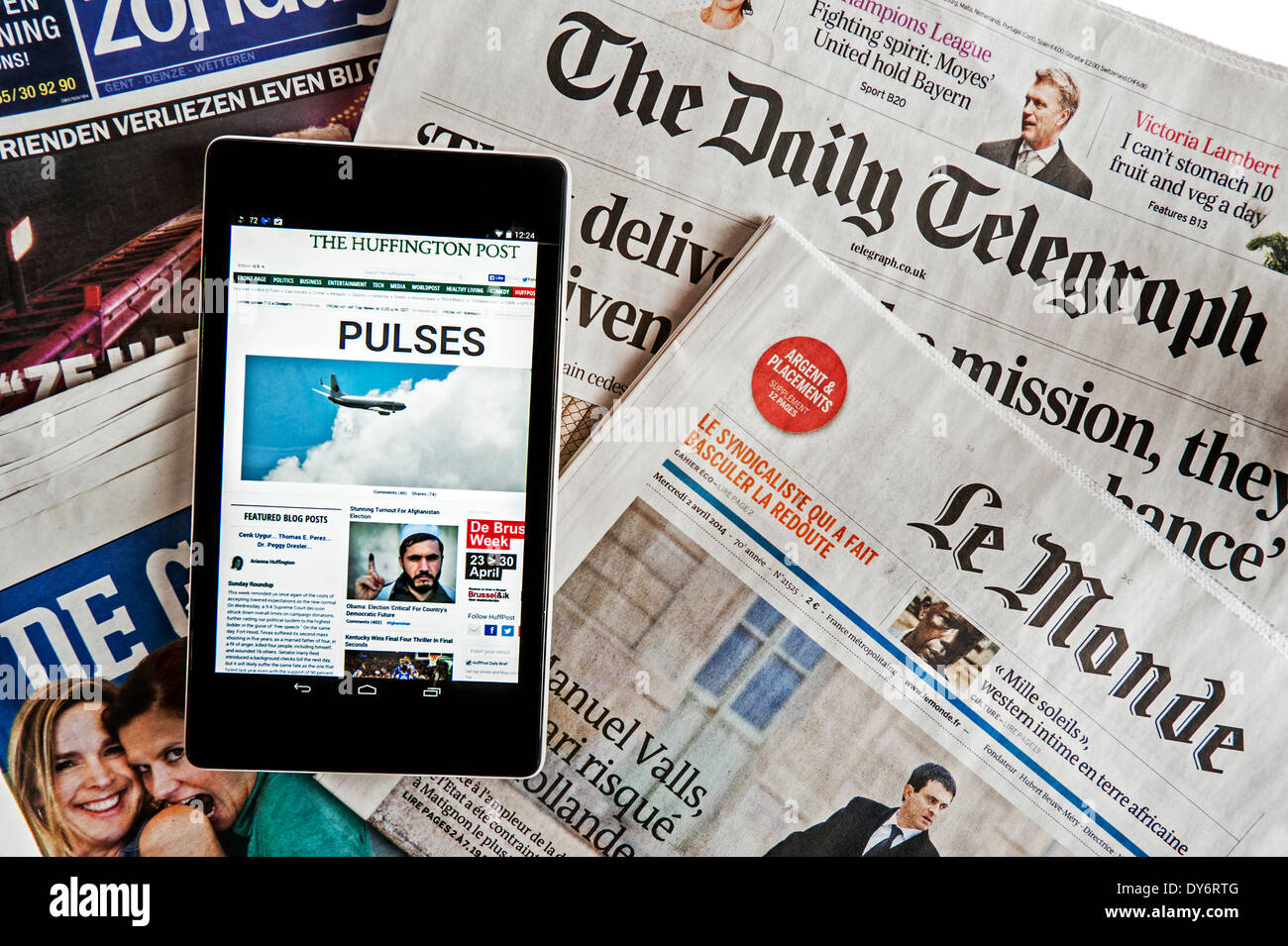The Role of stnews.live in the Real-Time News Ecosystem
Wiki Article
The Value of Fact-Checking in the World of News Online
The occurrence of false information in today's on-line news landscape has actually gotten to alarming degrees. Fact-checking organizations play a crucial function in neutralizing this trend. They validate insurance claims and boost the reliability of journalism. Nonetheless, the performance of these organizations usually hinges on their methods and public understanding. As audiences navigate this intricate atmosphere, the ramifications of their findings might form the future of news intake and depend on. What does this mean for the integrity of details progressing?
The Increase of False Information in the Digital Age
Exactly how has the development of digital technology contributed to the spread of false information? The fast growth of the web and social networks platforms has facilitated the circulation of details at an extraordinary pace. Individuals can share posts, video clips, and opinions with a plain click, often without validating the content's accuracy. Algorithms focus on sensational or emotionally billed product, bring about an expansion of deceptive stories that record focus.In addition, the privacy managed by electronic systems allows people to spread false details without liability (stnews.live). False information thrives in echo chambers, where customers are subjected mainly to viewpoints that enhance their beliefs, additionally setting fallacies. The saturation of information can overwhelm customers, making it challenging to recognize qualified sources from unstable ones. Misinformation has become a pervasive problem in the digital landscape, affecting public point of view and count on in legit news sources.
The Function of Fact-Checking Organizations
Fact-checking companies play an essential function in boosting the integrity of journalism by verifying insurance claims made in report. Their initiatives are important in combating misinformation, making sure that accurate information dominates in the electronic landscape. By holding media outlets responsible, these organizations add considerably to informed public discussion.Enhancing Trustworthiness in Journalism
While misinformation multiplies in the electronic age, fact-checking organizations play an essential role in improving the integrity of journalism. These companies meticulously verify claims made in news articles, public statements, and social networks blog posts, making certain that info disseminated to the general public is accurate and reliable. By giving independent analyses, they serve as an essential source for reporters, assisting them keep high standards of honesty. Furthermore, their efforts advertise openness in media, fostering public trust. As audiences become significantly discerning, the existence of reliable fact-checking entities can identify reliable news sources from those that might spread frauds. Inevitably, the dedication of fact-checking companies to maintain truthfulness is vital for the health of democratic discussion.Combating False Information Efficiently
As false information remains to spread rapidly throughout electronic systems, the duty of fact-checking organizations ends up being progressively crucial in the fight for exact info. These organizations function as guard dogs, looking at cases made by public numbers and media outlets to ensure responsibility. By utilizing extensive study techniques and expert evaluation, they validate facts and clear up deceptive stories. Their findings are shared through various channels, informing the public and cultivating critical reasoning. Additionally, collaborations with social networks systems boost their reach, enabling prompt flagging of false information. As digital proficiency expands, the influence of fact-checking organizations is crucial in equipping target markets to discern truth from fallacy, ultimately contributing to an extra informed society.How Misinformation Affects Public Assumption
Misinformation greatly undermines rely on media, leading target markets to doubt the integrity of news sources. Consequently, people often are attracted towards outlets that strengthen their present ideas, adding to the polarization of viewpoints. This vibrant produces a fragmented information landscape, where shared comprehending becomes progressively tough to attain.Count on Media

Trust in media has actually become progressively vulnerable in the electronic age, where the quick spread of false information can alter public perception. As misinformation multiplies across social networks and online platforms, target markets often discover it testing to discern qualified resources from unstable ones. This uncertainty cultivates suspicion, leading several individuals to question the motives behind news coverage. Count on in developed media electrical outlets has lessened, as consumers increasingly transform to alternative resources that may lack rigorous editorial requirements. This disintegration of count on not only impacts individual beliefs yet likewise threatens the cumulative ability to involve in notified discussions. Inevitably, the honesty of journalism is at risk, highlighting the critical requirement for effective fact-checking to recover confidence in the media landscape.

Polarization of Viewpoints
The boosting apprehension towards typical media has added to a growing polarization of opinions among the general public. False information, commonly shared with social media sites and on the internet platforms, plays a substantial function fit distinctive ideological separates. People frequently choose information that aligns with their pre-existing beliefs, reinforcing their viewpoints while dismissing opposing point of views. This echo chamber result intensifies departments, leading to a fragmented public discussion where consensus ends up being significantly elusive. Furthermore, sensationalized stories prosper in this setting, better skewing public assumption and promoting distrust in trustworthy resources. As polarization rises, the necessity for efficient fact-checking ends up being paramount to link spaces and promote educated discussions, inevitably guaranteeing a much more natural society efficient in navigating intricate problems.Strategies for Efficient Fact-Checking
Efficient fact-checking depends on a methodical method that includes thorough research, verification of resources, and critical analysis of claims. A foundational technique is cross-referencing information from numerous reputable resources to confirm its precision. Fact-checkers usually utilize specialized data sources and archives to trace the origin of specific statements, making certain that the reported info lines up with documented evidence.An additional necessary method includes scrutinizing the context in which claims are provided. Misleading info can develop from out-of-context quotes or selective information usage. By checking out the more comprehensive narrative, fact-checkers can recognize prospective prejudices or misinterpretations.
In addition, engaging with specialists in pertinent areas can supply quality and insight that boosts the fact-checking procedure. This cooperation can reveal subtleties that laypeople might neglect - stnews.live. Eventually, a regimented technique combining these strategies promotes a much more informed public, enhancing the dependability of info shared in the electronic age
The Effect of Social Media Site on News Usage
How has social media great post to read changed the way individuals take in news? The emergence of systems like Facebook, Twitter, and Instagram has especially altered news consumption patterns. News is currently distributed rapidly, allowing individuals to accessibility real-time updates and involve with content with likes, shares, and comments. This immediacy has actually cultivated a choice for bite-sized details, typically at the expense of comprehensive analysis.Social media makes it possible for personalized news feeds, where formulas curate web content based on individual choices, developing resemble chambers that may restrict direct exposure to varied viewpoints. The role of conventional news outlets has reduced as people increasingly count on peer referrals and trending subjects. The reputation of details is often compromised, as sensationalism can overshadow valid reporting. Generally, social networks has actually improved news intake, highlighting speed and customization while challenging the criteria of journalistic integrity.
Equipping Audiences to Identify Dependable Sources

In addition, analyzing the authorship and business background of newspaper article can reveal possible predispositions. Cross-referencing info across several respectable electrical outlets better improves the verification procedure. Using electronic devices, such as web browser expansions that rate the reliability of internet sites, can additionally aid in determining reliable info. By proactively involving with these sources and cultivating an essential attitude, audiences can much better equip themselves to recognize reliable news sources, inevitably get more cultivating a more informed society in the middle of the intricacies these days's media setting.
The Future of Journalism and Fact-Checking
As the media landscape evolves, the future of journalism and fact-checking encounters both tests and chances. The surge of digital platforms has actually democratized information circulation, enabling varied voices to emerge. Nevertheless, this has additionally caused the spreading of false information, demanding durable fact-checking systems. Reporters will increasingly rely on modern technology, consisting of AI devices, to verify facts quickly and successfully.Partnership between wire service and fact-checking entities is anticipated to enhance trustworthiness and openness. Target market engagement will play a necessary role, as notified readers become substantial companions in determining reliable material.
The need for liability and precision is most likely to grow, pushing journalists to maintain high criteria in their reporting. Ultimately, the future of journalism may pivot on its capacity to adjust to technical advancements while maintaining journalistic stability, making sure that fact-checking stays a cornerstone of legitimate news.
Often Asked Concerns
Just How Can I Report False Information I Run Into Online?
To report false information run into online, individuals can make use of platform-specific coverage devices, give clear evidence, and share the information with fact-checking companies. Engaging with area conversations can also aid raise recognition regarding the misinformation.What Are Common Indications of False Information in News Articles?
Typical signs of false information in newspaper article include mind-blowing headlines, lack of reputable sources, psychological language, irregular truths, and absence of writer credentials. Readers should critically assess material for these indications to recognize accuracy.Exactly How Do Fact-Checkers Verify Resources?
Fact-checkers confirm sources by cross-referencing information with reliable databases, getting in touch with experts, and examining the original context of insurance claims. They likewise assess the reliability of the sources, making certain exact and trustworthy info for public usage.What Lawsuits Can Be Taken Against Misinformation?
Legal activities versus false information may include vilification legal actions, cease-and-desist orders, and regulative charges. site link Victims can prosecute through civil courts, while some jurisdictions impose penalties or permissions on systems sharing incorrect information.Exist Apps for Fact-Checking News On-The-Go?
Countless applications exist for fact-checking news on-the-go, consisting of Snopes, FactCheck.org, and PolitiFact. These applications assist customers validate insurance claims promptly, promoting notified decision-making and promoting a much more critical strategy to consuming news in real-time.Report this wiki page